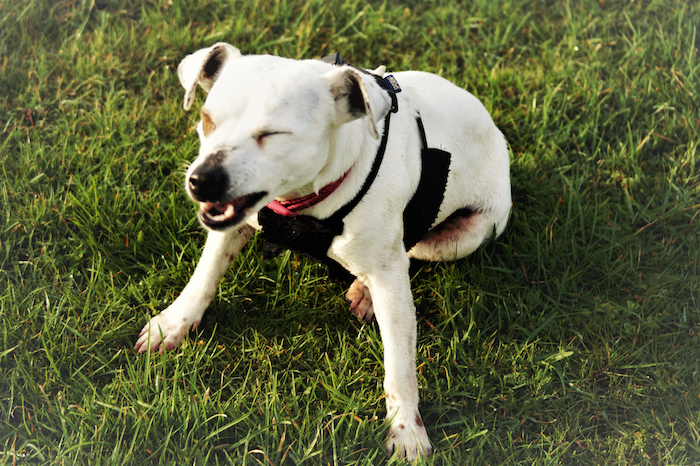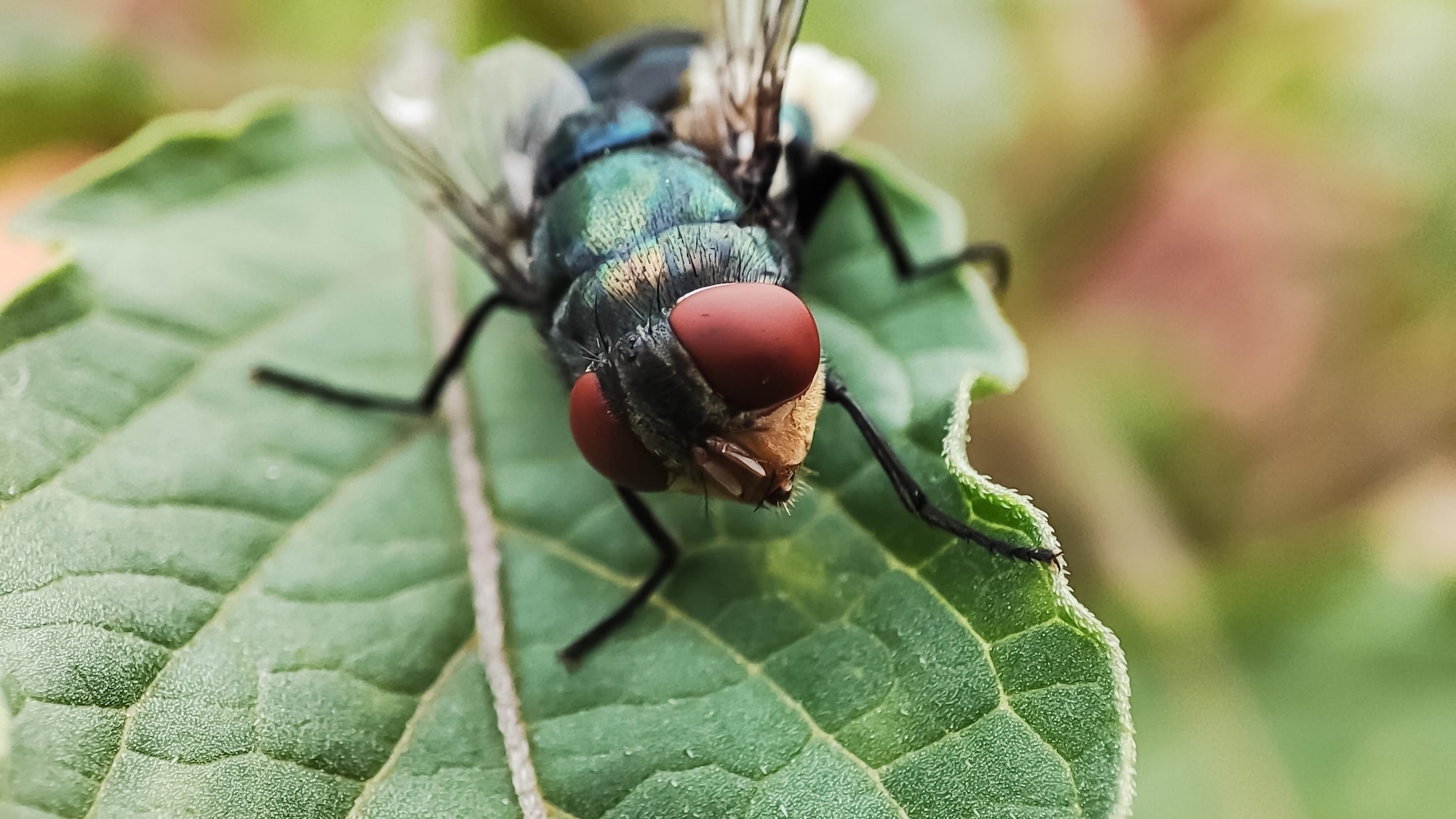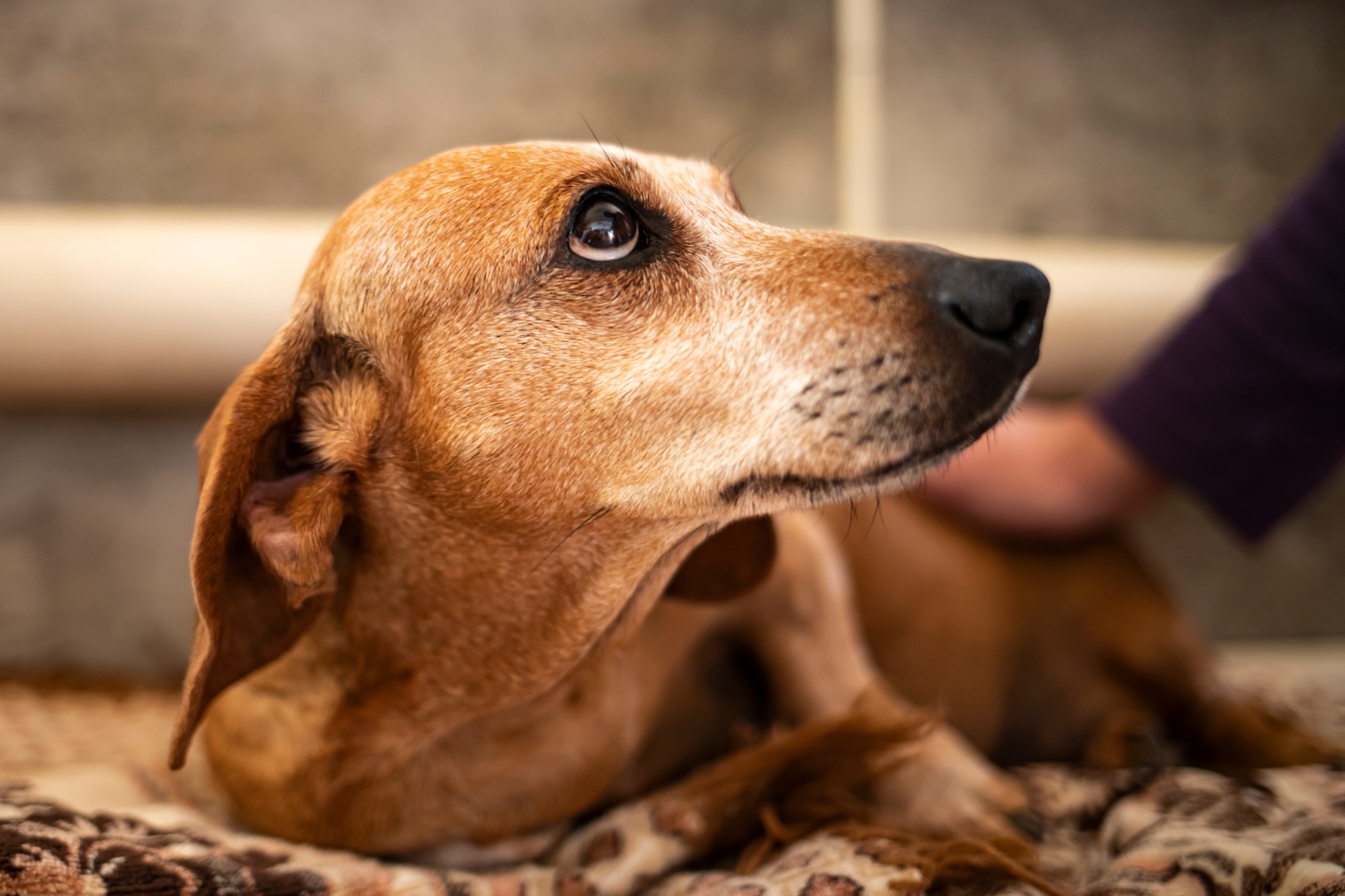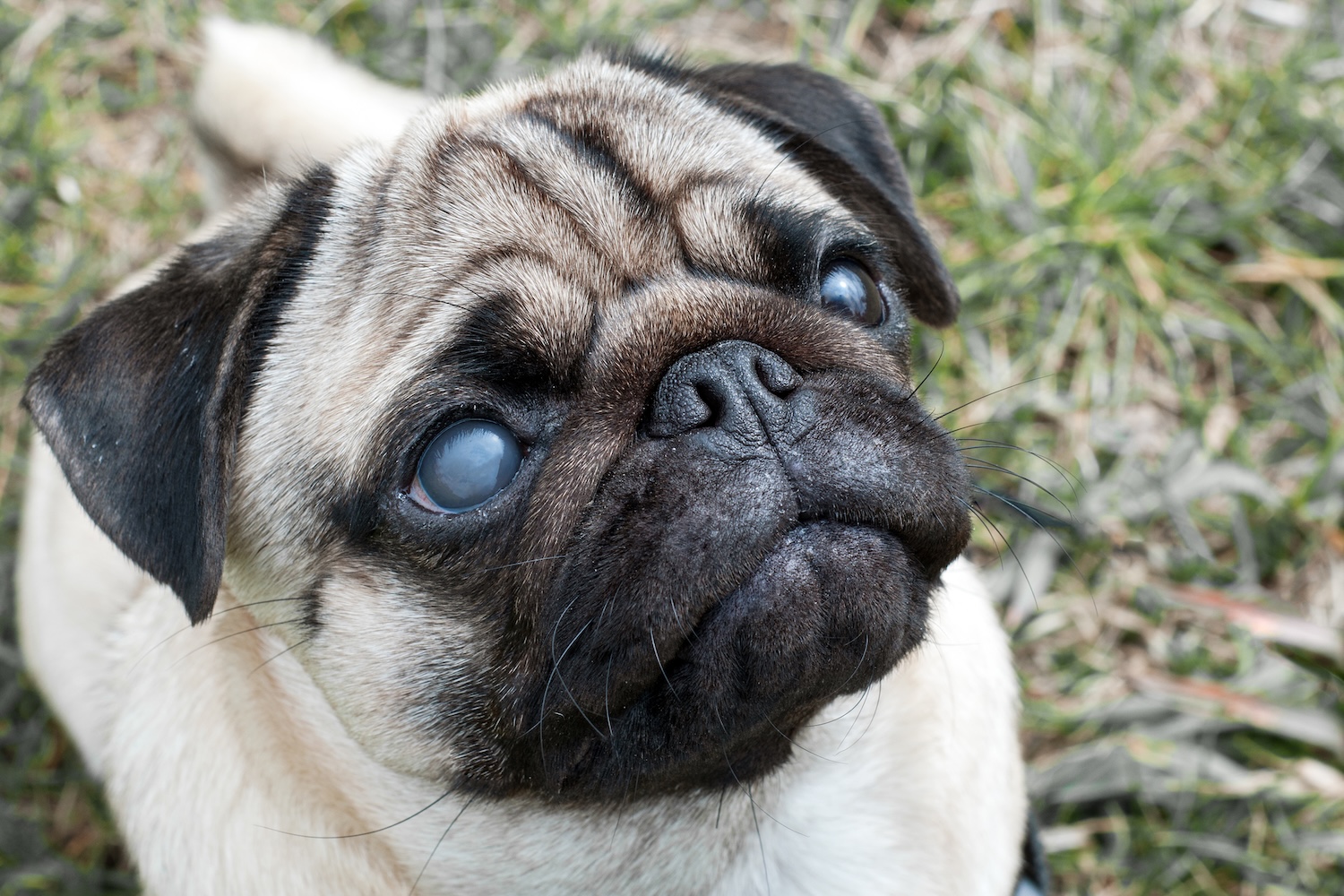Your dog doesn’t know the meaning of “bless you,” but you probably say it to them whenever they sneeze anyway. Beyond that obvious step, though, many dog owners may not be sure how to handle their dogs’ reflexive expulsion of air through the nose and mouth. That’s why we set out to learn everything there is to know about dog sneezes: why do they happen? When do you need to worry? And is there such a thing as a handkerchief made for canines? Read on for all the answers.

Health-related reasons your dog is sneezing
Dogs sneeze for many reasons similar to those that might lead you, a human reader, to engage in sternutation.
Just as most people wouldn’t visit the doctor after sneezing once or twice, there’s no need to bring your dog in for a checkup if they sneeze occasionally. But if you notice a big deviation from their baseline—they never used to sneeze, and now they’re doing so all the time—investigate the cause and consider visiting a veterinarian.
Household dust, smoke, fumes, or powders often make dogs sneeze. If any of these are near your dog when woof turns to ah-choo, consider them prominent suspects. And if you identify something that’s causing your dog to sneeze, and can remove it from their surroundings, do so. That could mean, for example, cleaning dust, using an air filter, or avoiding use of a product that gives off fumes.
There are certain irritants that dogs are likely to encounter due to their lifestyles. Grass, dirt, food, and foxtails—a group of grasses whose hard, spiky seeds burrow into animals—get stuck in dogs’ noses and trigger sneezing. If your dog is pawing at their nose or rubbing it against the ground or other surfaces, that could be a sign that something’s caught in there. Once a foxtail is in your dog’s nose, you won’t necessarily be able to see it. If you think that a foxtail might have found its way in, get your pup to a veterinarian as soon as possible—you’ll need a professional’s help to remove it, and delay could cause your dog more pain and health problems while costing you extra money.
While it’s rare, a dog’s sneezing can be caused by nasal mites. If a vet determines that this is the case for your pal, they will require treatment with medication. Another possible cause of excessive sneezing is an advanced dental problem; infections can start to impact the sinuses and nose. Dogs can get colds, just like us, so sometimes sneezing is a symptom of a mild respiratory condition. Sneezing is also among the many possible symptoms of Parvo, bordetella, and fungal or bacterial infections. Any nasal obstruction could be the reason for a dog’s sneezing—including, infrequently, issues as serious as nasal tumors. Seek veterinary care for your dog if you notice blood or colored discharge from the nose, signs of pain, or any unexplained increase in the frequency of their sneezing. Discharge from one side of the nose could also be a sign of a blockage or something more serious.
There’s no need to panic, because most sneezes are just a body’s natural way of expelling an unwelcome guest from the respiratory system. But, when in doubt, consult with a veterinarian. If you do visit the vet’s office, they will likely examine your buddy, listen to their nose and throat, and, if necessary, recommend taking blood samples, performing urinalysis, taking a biopsy, or using imaging tests to make a diagnosis.

Behavioral reasons for sneezing
Sometimes dogs sneeze for non-medical reasons. For example, a dog may sneeze while playing, when they get excited, or because they enjoy the attention they receive for sneezing. If your furry friend sneezes mostly when frolicking with other dogs or you, this is one possible explanation.
There are important differences between homed companion dogs and African wild dogs, but a 2017 study suggested that the latter use sneezes to “vote” on when hunts should begin. While this may be interesting information, the general principle remains: don’t fret if your dog sneezes every once in a while, but seek a vet’s advice if there’s a sudden change in the frequency or character of their sneezes, if they’re happening constantly, or there’s anything else unusual or alarming about them.
What does reverse sneezing mean in dogs?
Reverse sneezing is what the name sounds like—a condition in which a dog pulls air into their nose rather than pushing it out. This may produce a snorting sound. Like “regular” sneezes, it can be caused by various types of irritations, including pollutants and allergens, as well as excitement. As with other sneezes, if something in your home may be causing reverse sneezes, altering the environment is a good first step in trying to help your dog—remove the potential source of trouble and see if that puts a stop to the issue. Any dog can reverse sneeze, but small and brachycephalic breeds are more susceptible.
In most cases, reverse sneezing is no big deal and doesn’t require veterinary care. However, if your dog seems to be having a reverse-sneezing episode—which will typically last for a minute or less—you can try to calm them. One method that some veterinarians recommend is gently stroking your pup’s throat, lightly blowing into their face, or bringing them outside into the fresh air. Any act that soothes your dog, even one as simple as sitting with them for a while, could help.
Although reverse sneezing is usually not a cause for alarm, you should bring your dog to the veterinarian for a checkup if it happens persistently. First, to make sure that you are dealing with reverse sneezing and not something more dangerous—and, secondly, for treatment that may make your dog more comfortable. If allergies are the culprit, vets may recommend antihistamines to provide relief.

You said you’d tell us whether there was a handkerchief made for dogs
You can tie a cute handkerchief or bandana around your dog’s neck for decorative purposes, but dogs lack the skill to carry and use this piece of cloth the way a human would. However, a handkerchief is one of many tools you can use to wipe up after your dog if they do produce a messy sneeze.




